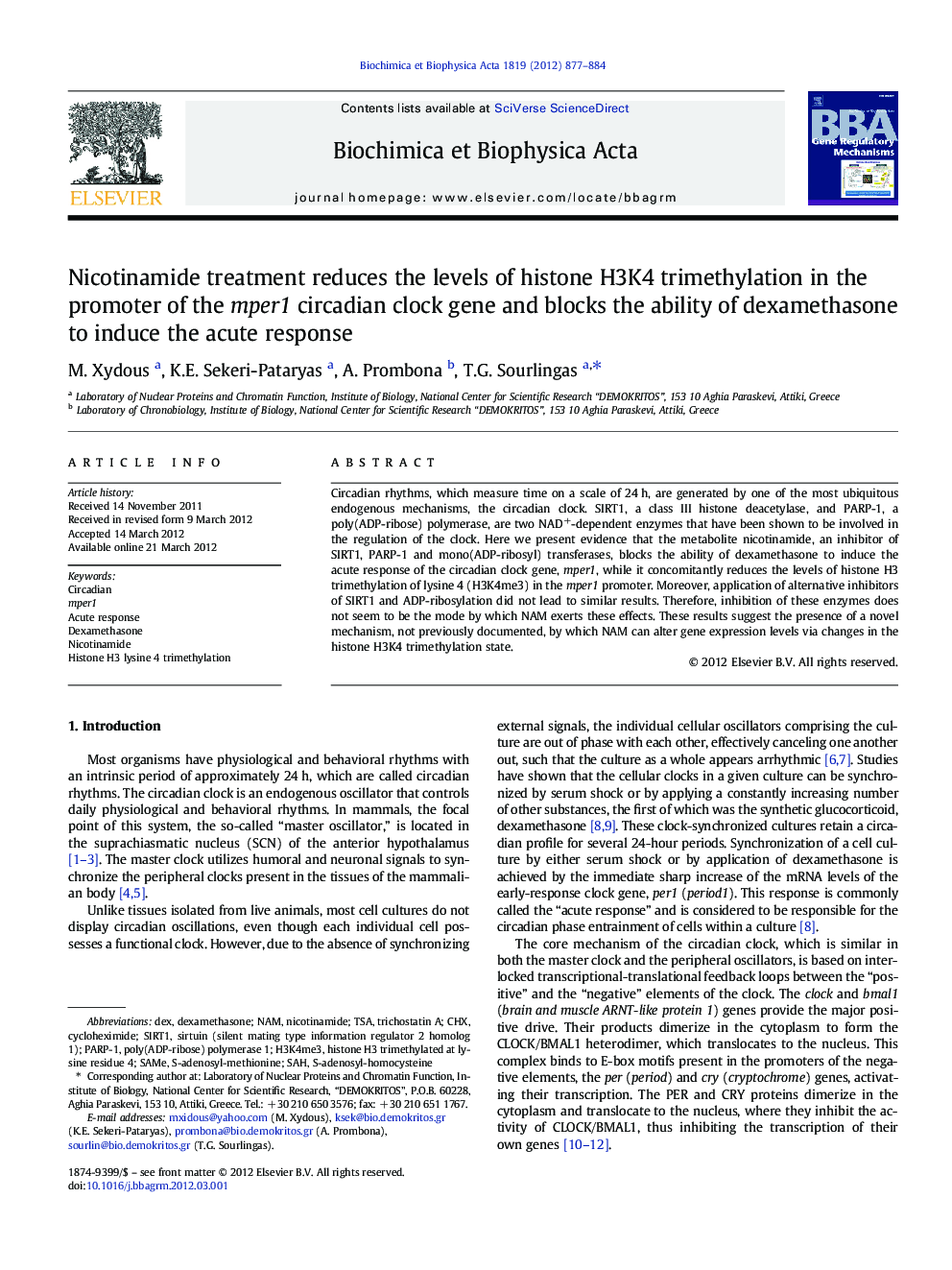| Article ID | Journal | Published Year | Pages | File Type |
|---|---|---|---|---|
| 1946520 | Biochimica et Biophysica Acta (BBA) - Gene Regulatory Mechanisms | 2012 | 8 Pages |
Circadian rhythms, which measure time on a scale of 24 h, are generated by one of the most ubiquitous endogenous mechanisms, the circadian clock. SIRT1, a class III histone deacetylase, and PARP-1, a poly(ADP-ribose) polymerase, are two NAD+-dependent enzymes that have been shown to be involved in the regulation of the clock. Here we present evidence that the metabolite nicotinamide, an inhibitor of SIRT1, PARP-1 and mono(ADP-ribosyl) transferases, blocks the ability of dexamethasone to induce the acute response of the circadian clock gene, mper1, while it concomitantly reduces the levels of histone H3 trimethylation of lysine 4 (H3K4me3) in the mper1 promoter. Moreover, application of alternative inhibitors of SIRT1 and ADP-ribosylation did not lead to similar results. Therefore, inhibition of these enzymes does not seem to be the mode by which NAM exerts these effects. These results suggest the presence of a novel mechanism, not previously documented, by which NAM can alter gene expression levels via changes in the histone H3K4 trimethylation state.
► We study SIRT1's role in the dexamethasone-induced acute response of mper1. ► We used two SIRT1 inhibitors, nicotinamide (NAM) and sirtinol. ► NAM attenuates the acute response, while sirtinol doesn't affect it. ► NAM's ability to inhibit either SIRT1 or PARP-1 is not involved in this effect. ► We report for the first time that NAM reduces H3K4me3 levels in the mper1 promoter.
